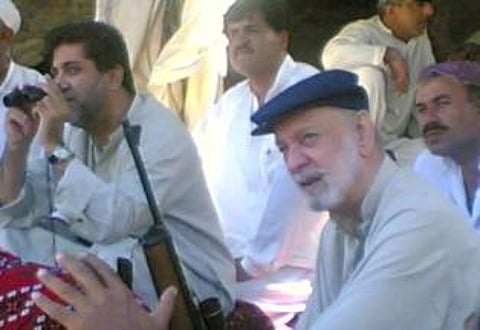“Ending the rule of Punjab, by Punjab and for Punjab” An interview with Sardar Ataullah Khan Mengal
Please pinpoint for us why the Baloch people feel discriminated against by the federal government.
How many tragedies do I have to count? The seeds of discontent lie in the fact that Balochistan, also called Kalat, was hesitant to accede to Pakistan right from the beginning. Unlike the other provinces, which had two choices before them – to join either India or Pakistan – we had a third: to remain independent. Balochistan, which had never been 'conquered' but had entered into a treaty with the British, opted for independence. Even though Mohammed Ali Jinnah had been an advocate for the Khan of Kalat, he chose to invade the territory, and coerced Balochistan to accede to Pakistan. Since then, every Baloch born is regarded as a 'traitor' in Pakistan. All of us are suspect. Conversely, the Pakistan Army in Balochistan is viewed as an occupying army, butchering the local people. This mutual distrust has given rise to eruptions every now and again, since 1972.
Meanwhile, our resources are being exploited, with no benefit to us. Employment-wise, all positions in Balochistan – from officers to sepoys – in the Secretariat, the police and the Frontier Corps, are filled up by outsiders. The local Baloch people are nowhere to be seen.

